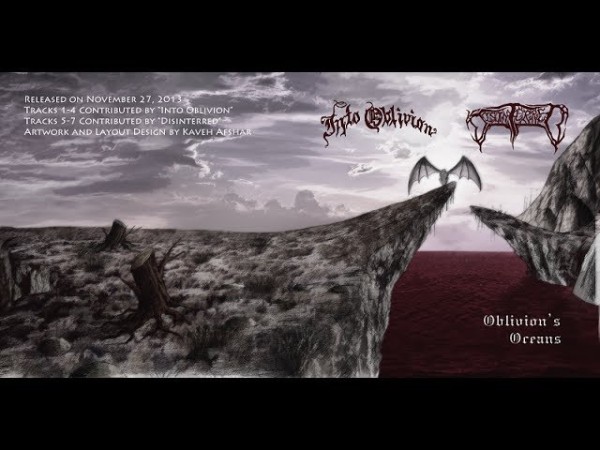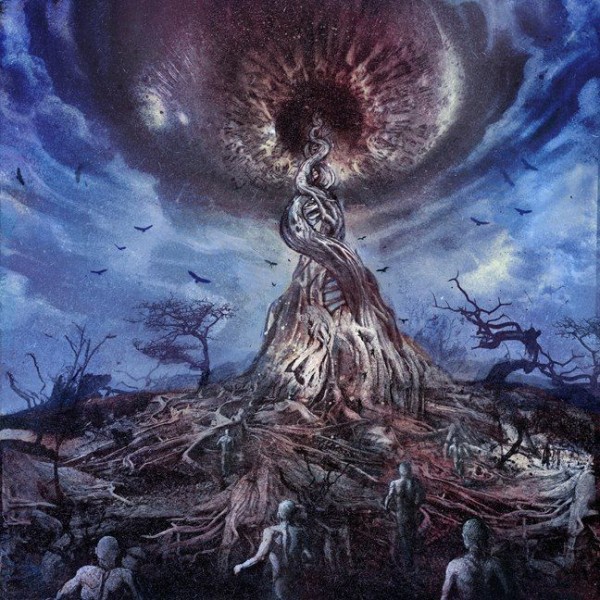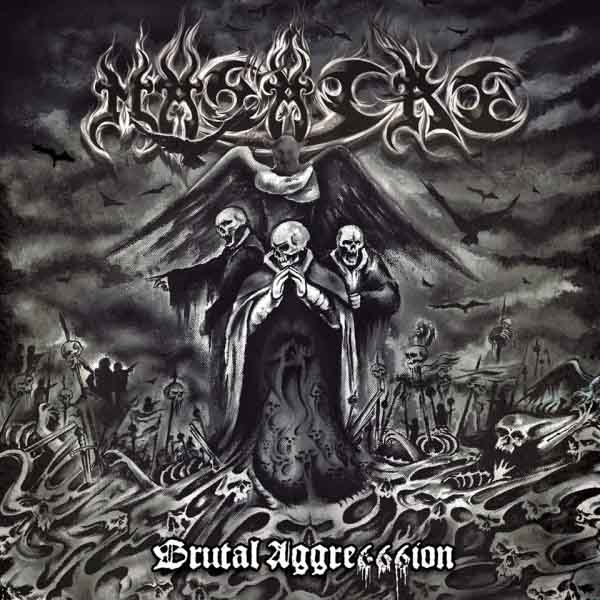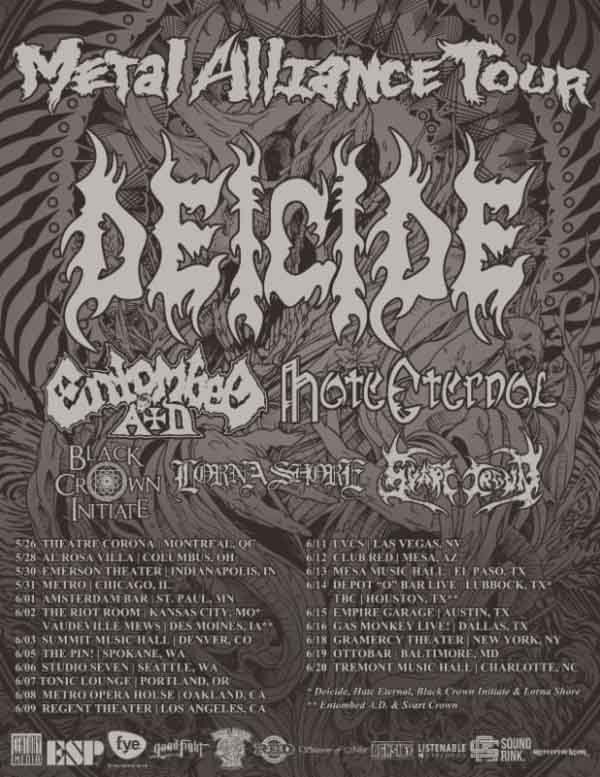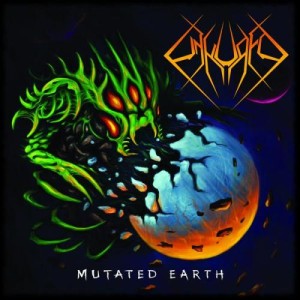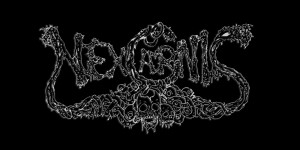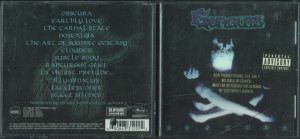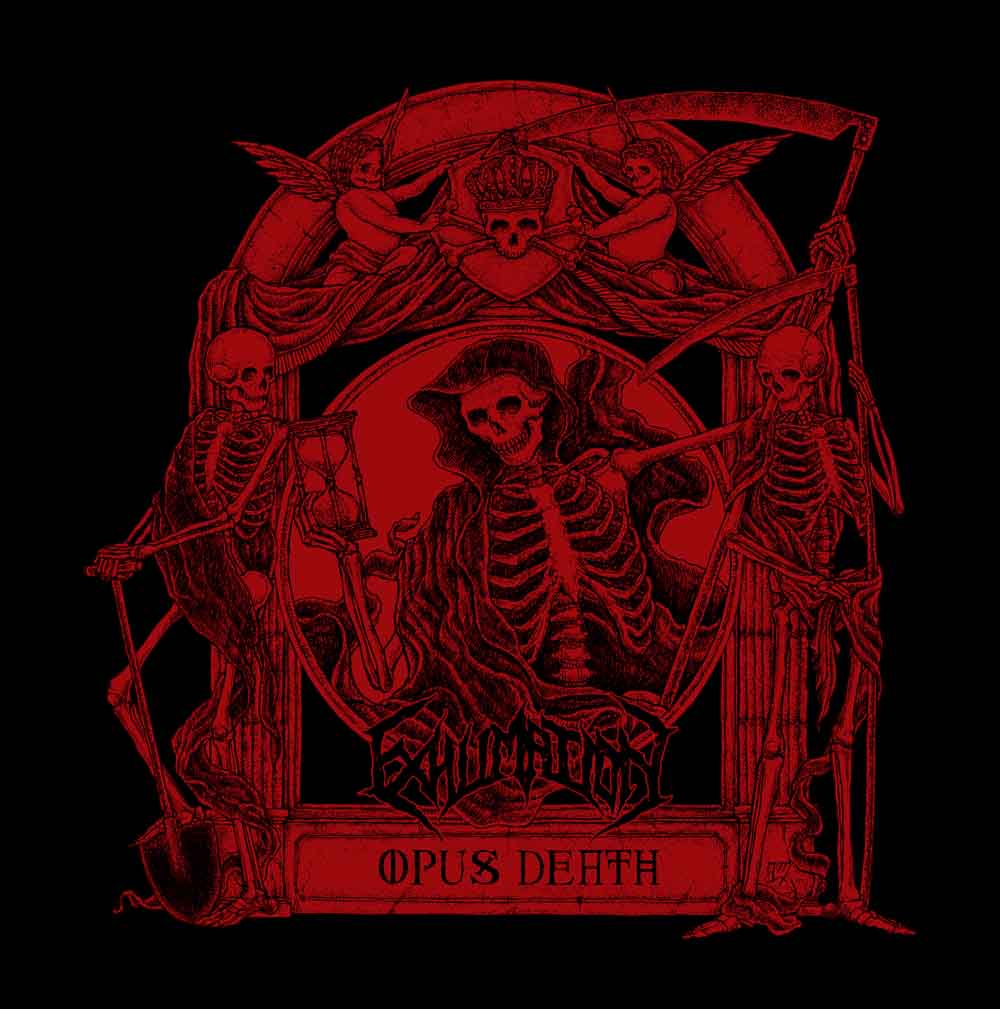Being a split, it is necessary to judge both bands here separately and the release itself as a whole. Both bands play death metal, but while the former is provisioned with a modern war-doom arsenal, the latter seem at least partially influenced by Scandinavian old-school black/death tremolo riffing. The production itself is much more clear and powerful in Into Oblivion’s songs.
Into Oblivion play death metal in a combination of modern voices including saturated style of war metal and the heavy, doom-oriented riffing of certain sludge bands. The more impetuous of these is reminiscent of Teitanblood or Heresiarch, except it is difficult to distinguish an original personality present in Into Oblivion’s music. Individually, some sections are engaging, even mesmerizing and beautiful (the beginning of By this Marvel Overthrown) but as a whole, the result is far from outstanding. Construction of the songs could be deemed lazy and/or cheap, advancing through alternations of saturated and doom textures by inserting riffs that are played until their momentum runs out and its balancing counterpart is inserted, and not according to a direction or necessity of expression in the music.
Disinterred also play with this alternation of fast and slow sections, except that Disinterred is better able to maintain a train of thought and expand it. The songs in this latter half seem more mature, the converging styles in it being more difficult to disentangle, a more solid product arising from a clear vision making use of its influences. One can also observe the use of saturation, but instead of a modern war metal, we have a disguised and worked Scandinavian spell at work. A strong advice for Disinterred would be to get rid of the triggered drums and do away with the cheap double-bass-drum-saturated drum fills that sound like Godflesh Apocalypse hiding its lack of ideas. This second half of the split brings a visible shape into focus, a haunting shadow reflecting the maddened character of the music. Still, it is only a vague shadow which Disinterred have not finished summoning just yet.
At this point, Oblivion’s Oceans shows us what is mostly a soulless collection of voices. Despite this, there is some promise in the music. Personally, this writer would not place too much hope on the nature of these bands changing or growing much as the nature of proper death metal bands itself seems to be monolithic. Any attempt to change them often results in their destruction and watering down. Few manage achieving the required reincarnation, often coming to life again as a simpler life form.
4 Comments
Tags: 2013, death metal, Disinterred, heresiarch, Into Oblivion, Oblivion’s Oceans, split, teitanblood, War Metal
